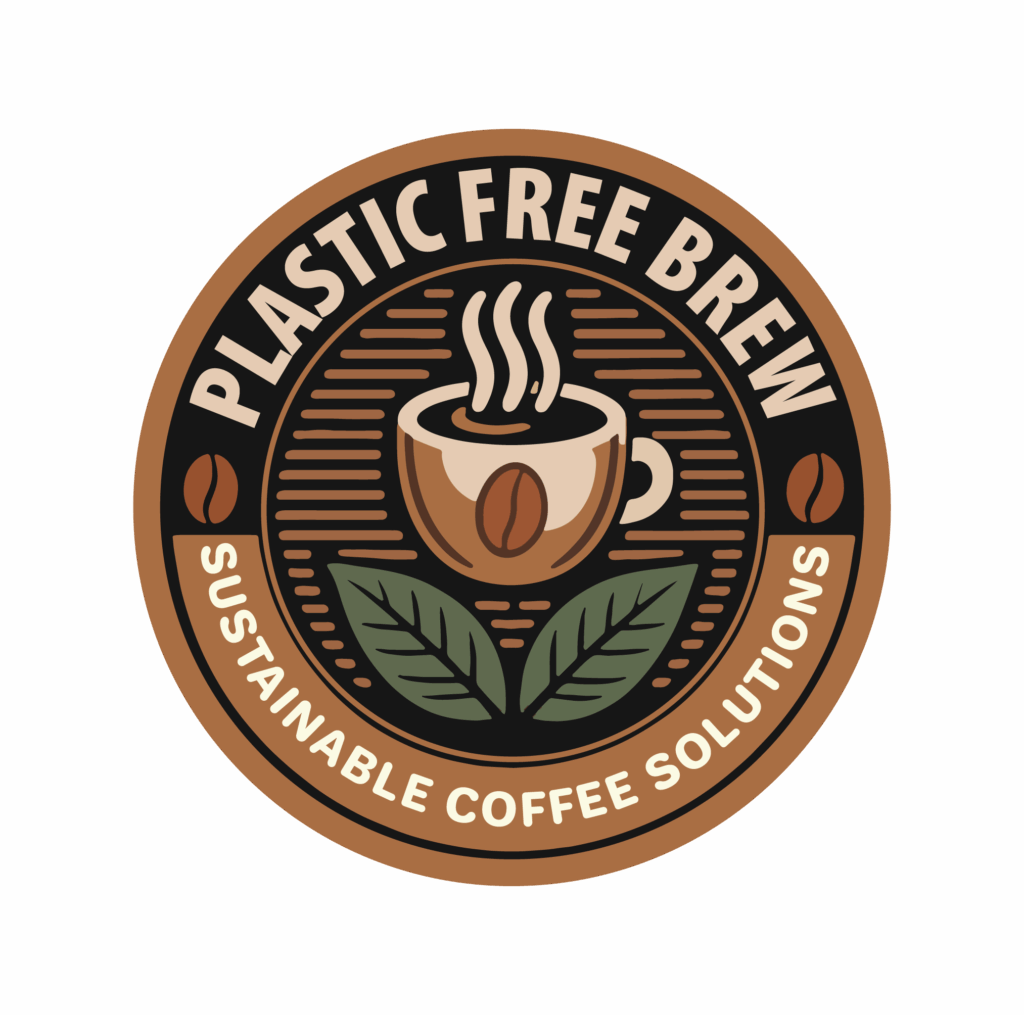
Polypropylene (PP), a thermoplastic polymer widely used in single-serve coffee pods such as K-Cups, have been under fire recently not just for their enviornmental impact but for consumer health implications. Microplastics if leached into food or beverages may contribute to systemic inflammation, endocrine disruption, and potential neurotoxicity, raising significant public health concerns. Recent findings, provide direct evidence of microplastics in human tissues, further necessitating evaluation of food-contact polymers in everyday products.
Single-serve coffee brewing systems have become ubiquitous, offering unparalleled convenience for consumers. However, the reliance on plastic materials, particularly PP, in these systems presents a potential vector for microplastic exposure. These plastics are subjected to repeated exposure to high temperatures and physical stress during the brewing process, conditions known to promote the release of microparticles and leachable chemicals.
Polypropylene, commonly used for its stability and affordability, may release polymer fragments, additives, and stabilizers, which can act as endocrine-disrupting chemicals (EDCs) and inflammatory agents. Evidence, including research from JAMA Network Open (Schrank et al., 2023), supports the hypothesis that these microparticles infiltrate human tissues, with measurable impacts on health.
Polypropylene and Microplastic Release from Coffee Pods
Thermal Stress:
The brewing process subjects polypropylene coffee pods to boiling or near-boiling temperatures (~90-100°C). Elevated temperatures has the possiblity of destabilizing the polymer matrix, causing microfractures and particle detachment.
Mechanical Puncture:
Single-serve pods are punctured by a metallic needle during brewing, exacerbating physical degradation. This mechanical stress facilitates the release of microparticles and potentially increases the interaction between plastic surfaces and liquid media.
Chemical Additives Leaching:
Additives like phthalates and bisphenols, incorporated into PP to enhance flexibility and heat resistance, may leach into the brewed coffee. These compounds have well-documented endocrine-disrupting properties (Wright et al., 2017).
Human Exposure to Polypropylene Microplastics
The detection of microplastics in human tissues is no longer speculative. A JAMA Network Open study (Schrank et al., 2023) identified microplastic particles in multiple tissue samples, including pulmonary and cerebral tissues, suggesting systemic exposure through ingestion and inhalation.
Bioaccumulation and Distribution
Microplastics can traverse biological barriers, including the intestinal epithelium and blood-brain barrier, due to their nanoscale dimensions and surface chemistry. Accumulation in vital organs, including the lungs and brain, raises concerns about chronic inflammatory states and neurotoxicity.
Endocrine Disruption
EDCs leached from plastics, such as bisphenol A (BPA) and bisphenol S (BPS), interfere with hypothalamic-pituitary-gonadal axis regulation. Disruption of these pathways has been implicated in reproductive dysfunction, thyroid dysregulation, and hormone-sensitive cancers (Wright et al., 2017).
Inflammation and Immune Dysregulation
Microplastics act as foreign bodies, activating macrophages and dendritic cells, which in turn propagate pro-inflammatory cytokine release (e.g., TNF-α, IL-6). Chronic low-grade inflammation is a hallmark of metabolic syndrome, atherosclerosis, and autoimmune diseases.
Neurological Implications
The ability of microplastics to breach the blood-brain barrier raises concerns about neuroinflammation and its role in neurodegenerative diseases such as Alzheimer’s and Parkinson’s. While direct causality remains under investigation, the detection of plastic particles in cerebral tissue is a critical finding warranting further research (Schrank et al., 2023).
Broader Implications for Drip Coffee Makers
While single-serve pods have drawn significant scrutiny, traditional drip coffee makers may also contribute to plastic exposure. Reservoirs, tubing, and filter baskets constructed from PP and other polymers are subject to repeated thermal cycling, leading to degradation and leaching over time.
Industry Response and Consumer Considerations
Major manufacturers, including Keurig, are beginning to address these concerns by developing alternatives to plastic-based pods. However, the adoption of sustainable materials across the coffee industry remains inconsistent.
Conclusion
The release of microplastics from polypropylene coffee pods could represents a significant public health concern, with implications for systemic inflammation, endocrine disruption, and neurological health. Evidence, such as that presented in JAMA Network Open (Schrank et al., 2023), underscores the urgent need for regulatory action and industry reform. Europe is already ahead of the curve and has banned Polypropelyne coffee pods. Until such changes are implemented, clinicians and consumers must take proactive steps to mitigate exposure and safeguard long-term health.
References
1. Schrank, I., et al. (2023). Detection of Microplastics in Human Tissues and Associated Health Implications. JAMA Network Open. Access Article.
2. Wright, S. L., & Kelly, F. J. (2017). Plastic and Human Health: A Micro Issue? Environmental Science & Technology.
